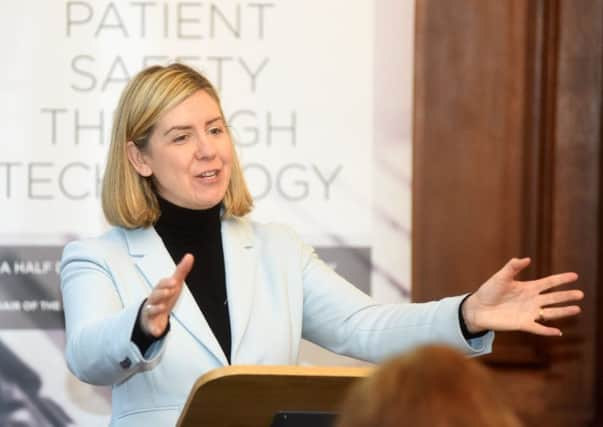In My View with Andrea Jenkyns MP: The true cost of medication errors


Sadly, my family are not an isolated case - recently I hosted a patient safety conference where I heard some devastating stories about the impact on all of those involved when things go wrong in our beloved NHS.
The conference in Westminster focussed on the impact of medication errors and bought together representatives from a number of leading hospital Trusts including Great Ormond Street Hospital (GOSH), pharmacy automation specialists Omnicell UK, Diabetes UK and the Royal College of Nursing to discuss ways in which we can work together to reduce such errors and help support our stretched NHS workforce. It attracted a number of attendees from different NHS Trusts and patient groups, who were able to put their questions to a panel.
Advertisement
Hide AdAdvertisement
Hide AdGuests heard some truly heart-breaking accounts of the real impact of medication errors including that of 51-year old lung cancer patient Phillipa, who despite warning healthcare professionals no less than six times of her allergy, was administered penicillin causing her to suffer a cardiac arrest and tragically pass away three days later in January 2014.
Her partner of 30 years Roy encapsulates perfectly the horror and true personal cost of these errors: “The impact on the family as a victim of a mistake is enormous – of having someone snatched away from you needlessly is appalling. We did not have time to say goodbye.”
A staggering 237 million medication errors occur every year in the UK, causing 712 deaths. The sheer number of patients and the ever-increasing complex regimes of our population is creating a perfect storm. Within hospitals, 78 per cent of errors occur in secondary care during the administration process. The World Health Organisation recognises the impact of the problem and has committed to a 50 per cent reduction of harmful medication errors by 2022.
While the conference agreed there was no one magic fix to reduce these errors, there was agreement in the room that much could be done now to allow us to start heading in the right direction.
Advertisement
Hide AdAdvertisement
Hide AdThis includes a move towards ‘closed loop prescribing and administration’ where automation and software is integrated within hospitals to ensure the right patient is administered the right dose of the right drug at the right time.